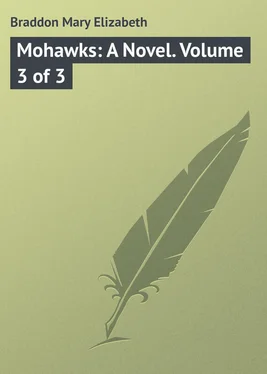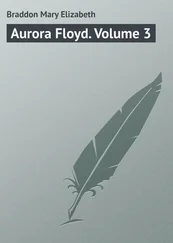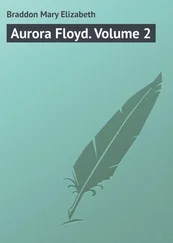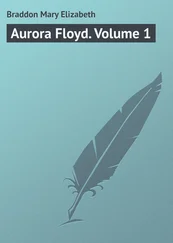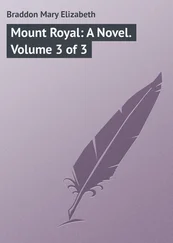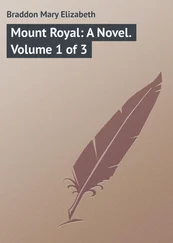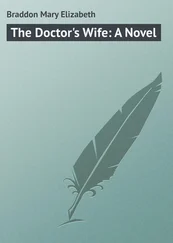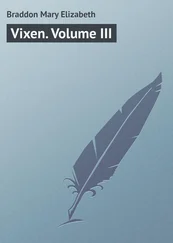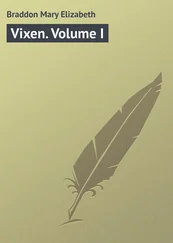Mary Braddon - Mohawks - A Novel. Volume 3 of 3
Здесь есть возможность читать онлайн «Mary Braddon - Mohawks - A Novel. Volume 3 of 3» — ознакомительный отрывок электронной книги совершенно бесплатно, а после прочтения отрывка купить полную версию. В некоторых случаях можно слушать аудио, скачать через торрент в формате fb2 и присутствует краткое содержание. Жанр: foreign_prose, на английском языке. Описание произведения, (предисловие) а так же отзывы посетителей доступны на портале библиотеки ЛибКат.
- Название:Mohawks: A Novel. Volume 3 of 3
- Автор:
- Жанр:
- Год:неизвестен
- ISBN:нет данных
- Рейтинг книги:5 / 5. Голосов: 1
-
Избранное:Добавить в избранное
- Отзывы:
-
Ваша оценка:
- 100
- 1
- 2
- 3
- 4
- 5
Mohawks: A Novel. Volume 3 of 3: краткое содержание, описание и аннотация
Предлагаем к чтению аннотацию, описание, краткое содержание или предисловие (зависит от того, что написал сам автор книги «Mohawks: A Novel. Volume 3 of 3»). Если вы не нашли необходимую информацию о книге — напишите в комментариях, мы постараемся отыскать её.
Mohawks: A Novel. Volume 3 of 3 — читать онлайн ознакомительный отрывок
Ниже представлен текст книги, разбитый по страницам. Система сохранения места последней прочитанной страницы, позволяет с удобством читать онлайн бесплатно книгу «Mohawks: A Novel. Volume 3 of 3», без необходимости каждый раз заново искать на чём Вы остановились. Поставьте закладку, и сможете в любой момент перейти на страницу, на которой закончили чтение.
Интервал:
Закладка:
"You are a devil!" muttered Bosworth, walking towards the door.
"I am as God made me – a woman who could love, and who can hate."
CHAPTER III
"AND ALL YOUR HONOUR IN A WHISPER LOST."
The great house in Soho Square was alive with movement and light, the going and coming of guests, the setting down of chairs and squabbles of coachmen and running footmen, the flare of torches in the autumn dusk. The Topsparkles were in town again, everybody of importance had come to town, to be present at the coronation, from old Duchess Sarah and her bouquet of Duchess daughters, and her wild grandsons and lovely granddaughters, and the mad Duchess of Buckingham, and Mary Wortley Montagu, otherwise Moll Worthless, and the wits and beaux and Italian singers – all the little great world of brilliant personalities, card-playing, dicing, intriguing, dancing, masquerading, duelling, running away with other men's wives or beating their own. The wild whirlpool of town life was at its highest point of ebullition, all the wheels were going madly round, and the devil and his imps had their hands full of mischief and iniquity.
It was the first winter season of the new reign. Caroline was triumphant in her assurance of a well-filled purse; in her security of dominion over a dull, dogged, self-willed little husband, who was never more her slave than when he affected to act and think for himself; happy too in the knowledge that she had two of the cleverest men in England for her prime minister and her chamberlain; scornfully tolerant of a rival who helped her to bear the burden of her husband's society; indulgent to all the world, and proud of being admired and loved by the cleverest men in her dominions. King George was happy also after his sober fashion, oscillating between St. James's and Richmond, with a secret hankering for Hanover, hating his eldest son, and with no passionate attachment to any other member of his numerous progeny. Amidst the brilliant Court circle there were few ladies whom the Queen favoured above Judith Topsparkle. She had even condescended so far as to wear the famous Topsparkle diamonds at her coronation; for of all Queen Anne's jewels but a pearl necklace or so descended to Queen Caroline, and it was generally supposed that his late Majesty had ransacked the royal jewel-caskets for gems to adorn his German mistresses, the fat and the lean; while perchance his later English sultana, bold Miss Brett, may have decked her handsome person with a few of those kingly treasures. At any rate, there was but little left to adorn Queen Caroline, who was fain to blaze on her coronation-day with a borrowed lustre.
It was November; the Houses were sitting, and Lavendale, after a period of complete seclusion and social extinguishment, had startled the town in a new character, as politician and orator. Perchance his friend's success in the Lower House may have stimulated his ambition, or his appearance in the senate may have been a whim of the moment in one whose actions had been too often governed by whim; but whatever the motive, Lord Lavendale startled the peers by one of the finest speeches that had been made in that august assembly for some time; and the House of Lords in the dawn of the Hanoverian dynasty was an assembly which exercised a far more potent influence for good or evil than the Upper House of that triply reformed Parliament which we boast of to-day.
People talked about Lord Lavendale's speech for at least a fortnight. It was not so much that the oration itself had been really fine and had vividly impressed those who heard it, but it was rather that such dignified opposition, such grave invective, and sound logic came from a survivor of the Mohawk and of the Calf's Head Clubs, a notorious rake and reveller, a man whose name five years ago had been a synonym for modish profligacy. It was as when Lucius Junius Brutus startled the Roman Forum; it was as when Falstaff's boon companion, wild Prince Hal, flung off his boyish follies and stood forth in all his dignity as the warrior king; it was a transformation that set all the town wondering; and Lavendale, who had plunged again into the whirlpool of society, found himself the fashion of the hour, a man with a new reputation.
Yes, he had gone back to the bustling crowded stage of Court life: he had emerged from the hermit-like seclusion of laboratory and library, from the wild walks and woodland beauties of Lavendale Manor. He was of the town again, and seemed as eager for pleasure as the youngest and gayest of the bloods and beaux of Leicester Fields and St. James's. He attended half a dozen assemblies of an evening, looked in nightly at opera or playhouse, gambled at White's, talked at Button's, dawdled away an occasional morning at Dick's, reading the newest pamphlet for or against the Government. He was seen everywhere.
"Lavendale has been in Medea's cauldron," said Captain Asterley. "He looks ten years younger than when I saw him last summer."
"I believe the man is possessed," replied Lady Polwhele; "he has an almost infernal gaiety. There is a malignant air about him that is altogether new. He used to be a good-natured rake, who said malicious things out of pure light-heartedness; but now there is a lurking devilry in every word he utters."
"He is only imitating the mad Irish parson," said Asterley. "Your most fashionable wit, nowadays, is a mixture of dirt and malignity such as the Dean affects. Everybody tries to talk and write like Cadenus, since it has been discovered that to be half a savage and more than half a beast is the shortest road to a woman's favour."
"I believe all you men are jealous of the Dean," retorted her ladyship, "and that is why his influential friends have conspired to keep him on the other side of the Irish Channel. He is a fine personable man, and if he has his savage gloomy moods, be sure he has his melting moments, or that poor Miss Vanhomrigh would not have made such a fool of herself. I saw her once at an auction, and thought her more than passable, and with the manners of a lady."
There had been no more spurts of jealousy on the part of Mr. Topsparkle. His wife and he had lived on the most courteous terms since last midsummer, Lavendale's disappearance from the scene had appeased the husband's anger. He concluded that his remonstrances had been taken in good part, and that Lady Judith had dismissed her flirt. That Lavendale had been anything more than her flirt Mr. Topsparkle did not believe; but from flirt to lover is but a swift transition, and there had assuredly been an hour of peril.
Mr. Topsparkle also had a rejuvenised air when he came up to town and made his reappearance in distinguished circles; but what in Lavendale was a caprice of nature, an erratic flash and sparkle of brilliancy in a waning light, was in Topsparkle the result of premeditated care and the highest development of restorative art. He had vegetated for the last three months at Ringwood Abbey, leaving his wife to do all the hard work of entertaining visitors, and sleeping through the greater portion of his existence; and now he reappeared in London full of energy and vivacity, and with an air of superiority to most of the younger men, who were content to show themselves in their true colours as exhausted debauchees, men who had drained the cup of sensual pleasure to the dregs, and whose jaded intellects were too feeble to originate any new departure in vicious amusements.
Though in society Mr. Topsparkle affected to be only the connoisseur, dilettante, and man of fashion, there was a leaven of hard-hearted commercial sagacity in his mind, an hereditary strain which marked his affinity to the trading classes. Keen though he was as a collector of pictures and curios, he was still keener as a speculator on 'Change, and knew every turn in the market, every trick of the hour.
He loved London because it brought him nearer to the money market, brought him, as it were, face to face with his millions, which were for the most part invested in public securities, Alderman Topsparkle having had no passion for adding field to field at two and a half per cent per annum. The alderman put out his wealth safely, in the New River Company and in the best National securities.
Читать дальшеИнтервал:
Закладка:
Похожие книги на «Mohawks: A Novel. Volume 3 of 3»
Представляем Вашему вниманию похожие книги на «Mohawks: A Novel. Volume 3 of 3» списком для выбора. Мы отобрали схожую по названию и смыслу литературу в надежде предоставить читателям больше вариантов отыскать новые, интересные, ещё непрочитанные произведения.
Обсуждение, отзывы о книге «Mohawks: A Novel. Volume 3 of 3» и просто собственные мнения читателей. Оставьте ваши комментарии, напишите, что Вы думаете о произведении, его смысле или главных героях. Укажите что конкретно понравилось, а что нет, и почему Вы так считаете.
